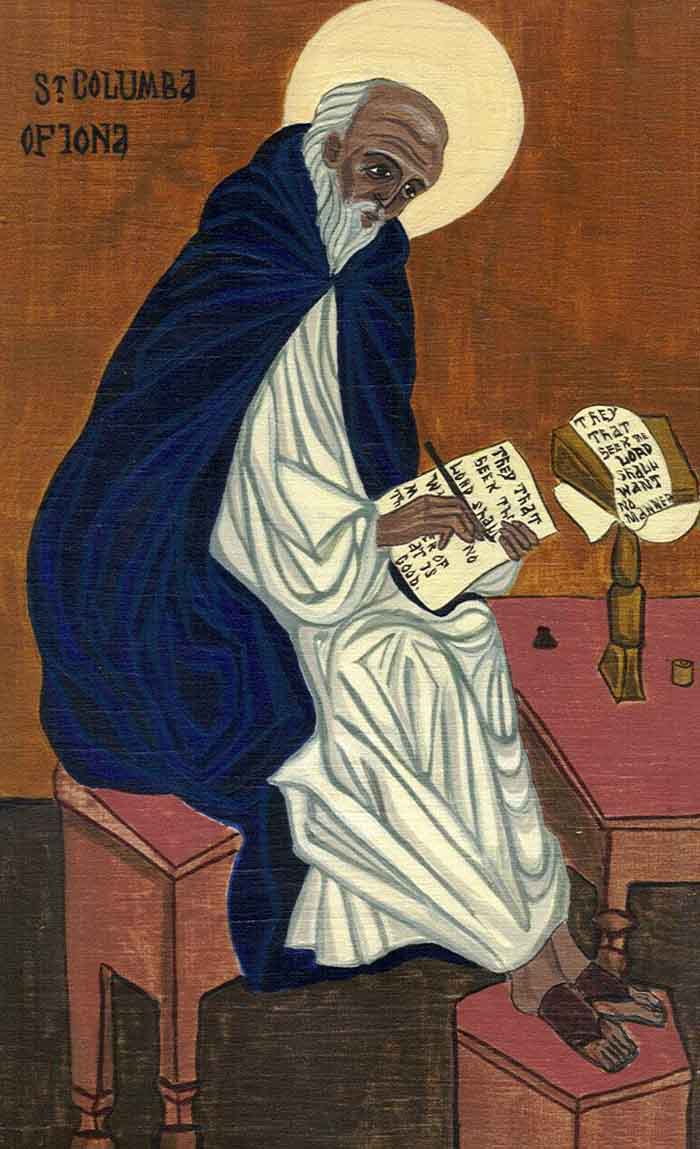+
"We cannot do more than give ourselves to God, but we can do this every moment of the day. It is a mistake to imagine we require any other circumstances than those in which we are living to do this. Every thought, word and deed may be a givng of ourselves to him,and then when we come to die it will be just giving ourselves wholly to God." --Father Andrew (from a letter)
Father Andrew, SDC was a great anglo-catholic priest in the Church of England. He was co-founder of the Society of the Divine Compassion, the first Franciscan Community established in the Church of England since the Reformation. Father Andrew served and laboured in East London among the poor and those whose needs were great in order to bring them the love and compassion of Jesus. The following is one of his great homilies and one of the great Anglican homilies on the Blessed Sacrament.
Corpus Christi
On the Blessed Sacrament
The Holy Eucharist is always first of all a Godward offering; an act of Christ our Brother, offering himself as the Son of Man for us all; the perfect Sacrifice, which is our pure worship and our atoning peace. All Jewish sacrifices were Godward offerings, all Jewish mentality was steeped in the sacrificial idea. There could have been no doubt in the minds of the apostles that the words spoken at the Last Supper were sacrificial words, that the whole service was a sacrificial service.
It is, secondly, a manward offering, a communication of His most sacred Self to us by Christ our God, Who, for our sakes and for our salvation, became man, and, as man, in our human nature offered for us all a perfect Sacrifice, set us all a perfect example, and now communicates to us the power of His endless life in the holy mysteries of the altar. Our Lord said first of all, 'This is My Body, which is given for you; this is My Blood which is shed for you.' This He said in sacrifice sacrificially. Then He said, in effect, 'This is My Body which is given to you; this is My Blood which is given to you. Take, eat, drink, do, in remembrance of Me.'
We do not receive bread and wine in memory of Christ, but we receive Christ in memory of Calvary.
We have to keep always in our minds that the Mass is not first of all private and parochial, the bringing of our own needs to Christ, but an act of worship of the whole Church, the Body of Christ, in which each one of us has an individual share as a worshipper. In every Mass, time and space are not so much obliterated as captured, and we are linked up with the Upper Room and 'the same night on which He was betrayed,' and Mount Calvary, and the worship of heaven where the Lamb of God is ceaselessly adored, and all other Catholic Christians everywhere, who are at countless altars offering to the eternal Trinity the full, perfect, and sufficient satisfaction, oblation, and sacrifice of praise and thanksgiving.
Christ our Lord, having offered for us all the perfect sacrifice, now in His courtesy invites us as His guests to partake of that sacrifice. We may think of Christ's courtesy in Holy Communion. Emerson has a good sentence about hospitality. He says, 'Let not the emphasis of hospitality lie in bed and board: but let truth and love and honour and courtesy flow in all thy deeds.' What the American transcendentalist would teach us is that the highest kind of host does not just welcome us to his table but to his mind, to the hospitality of his thought and the sharing of his ideas. This our Lord will surely do. Holy Communion is not just spiritual; it is not receiving bread and wine in memory of Christ and with a special sense of His spiritual Presence with His people: it is receiving Him Himself in memory of Calvary.
He Who is sacramentally present is the very same Christ Who was historically present in the years of His incarnate life. But when we have guarded that truth in our faith and in our minds, we must realise that our communion is with One Who would call us friends, and would give us the hospitality not only of His board but of His soul and heart and mind. So, having made our act of worship in union with His whole Church, we then bring to Him in very truth our parochial and personal needs, our special environment, the condition of the world in our day, our own personal contacts, delightful and difficult, our hopes and fears, our joys and sorrows. The Mass is first of all a Godward offering, full, perfect, and sufficient; it is secondly a manward communion, intimate and tender, of uttermost sympathy and understanding.
As the Mass is first a Godward offering and secondly a manward communion, so the Christian life is first a life of consecration and self-oblation and secondly a comradeship. But the greater includes the less, and the first is the condition of the second. Our relationship with God is the key to all relationships with creatures and persons. The priest at the altar does not give us unconsecrated bread; we must not give to our brothers an unconsecrated comradeship.
Father Andrew, S.D.C.
+Ora pro nobis.
















